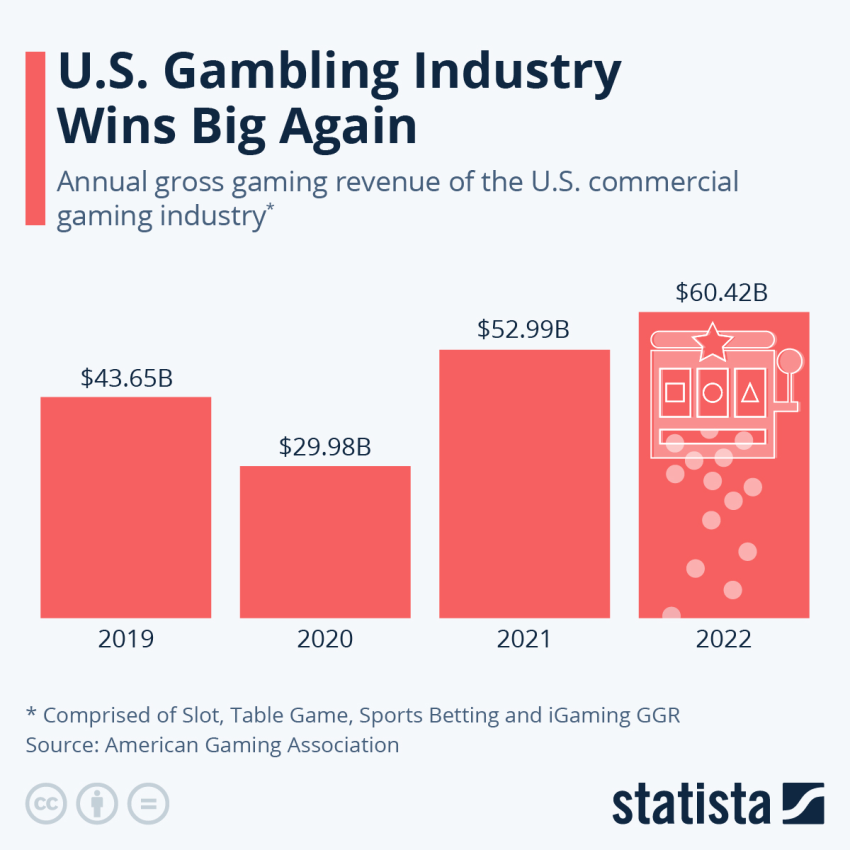The gambling industry has undergone remarkable transformations as it adapts to the digital age, and it is no longer confined to the walls of physical casinos. In recent years, the rise of online gambling has captured the attention of millions, propelling gambling revenues to unprecedented heights. With mobile gambling now at the forefront, players can engage in their favorite games anytime and anywhere, making convenience a hallmark of this sector. As these trends continue to evolve, responsible gambling practices are becoming increasingly essential to safeguard players and promote healthy gaming habits. Join us as we delve into the facts and figures that outline the current landscape and future prospects of the gambling industry.
Exploring the realm of betting and wagering reveals a landscape that has dramatically shifted towards virtual engagement. The rise of digital platforms has transformed traditional gaming into a contemporary phenomenon, making gambling accessible to a wider audience. As mobile trends gain momentum, the convenience of placing bets on smartphones has changed the way people interact with gambling. The need for responsible gaming practices has never been more critical, as this burgeoning industry navigates the complexities of modern consumer behavior. In this discussion, we will uncover the statistics and insights that define the current state of the betting and wagering sector.
The Evolution of the Gambling Industry: Navigating Change in 2023
The gambling industry is undergoing a remarkable transformation, driven by technological advancements and evolving consumer behaviors. In 2023, the rapid growth of online gambling has become a defining feature, highlighting the industry’s shift towards digital platforms. With players increasingly favoring online options, gambling companies are adopting advanced technologies to enhance user engagement and retention. From cutting-edge mobile applications to immersive live dealer experiences, the industry’s ability to adapt is vital. As a result, understanding the dynamics of this transition is essential for stakeholders aiming to thrive in a competitive landscape.
Moreover, the increase in gambling revenues is closely tied to regulations aimed at fostering safer gambling environments. The legalization of online gambling in numerous regions has paved the way for a more structured and secure framework. This regulatory support not only ensures consumer protection but also generates significant tax revenues for local governments. As we delve into the trends shaping the gambling industry, it becomes clear that the integration of technology and appropriate regulations is pivotal to navigating the industry’s evolution in 2023.
Frequently Asked Questions
What are the current trends influencing the online gambling industry?
The online gambling industry is currently experiencing significant growth driven by several key trends. First, the increasing legalization of online gambling across various jurisdictions enhances market accessibility, drawing more players. Additionally, the rise of mobile gambling, where apps are expected to make up a large portion of online gambling revenues, contributes substantially to market expansion. Furthermore, advancements in technology, such as improved graphics and interactive features, cater to younger demographics, making online platforms more engaging. Together, these trends underscore the dynamic evolution of the online gambling landscape.
How is the gambling industry addressing responsible gambling initiatives?
The gambling industry is placing a heightened focus on responsible gambling initiatives to combat potential issues associated with gambling addiction. Operators are implementing comprehensive awareness campaigns aimed at educating players about the risks of gambling and providing resources to help them stay in control. Many gambling platforms are partnering with mental health organizations to foster support networks and create tools to assist individuals struggling with gambling-related problems. These proactive measures signify the industry’s commitment to promoting safe gambling practices amidst rapid growth.
| Key Points | Details |
|---|---|
| Market Growth | The global gambling market is expected to exceed $500 billion by 2023, driven by online gambling’s rapid growth. |
| Factors Contributing to Growth | Legalization, advancements in technology, and younger demographics are crucial drivers in this market expansion. |
| Online vs. Offline Gambling | Online gambling is gaining market share due to its convenience, while brick-and-mortar casinos face challenges. |
| The Rise of Mobile Gambling | Mobile gambling is projected to account for 70% of online revenues by 2025, marking a significant trend. |
| Regulatory Trends | Increasing legalization and regulation worldwide are making gambling safer and generating substantial tax revenues. |
| Consumer Behavior Trends | Younger generations prefer digital gambling formats, leading to the need for engaging and interactive experiences. |
| Impact of COVID-19 | The pandemic accelerated the shift to online platforms, with many players opting for remote gaming. |
| Responsible Gambling Initiatives | Operators and regulatory bodies are focusing on campaigns and partnerships to promote responsible gaming. |
Summary
The gambling industry is witnessing unprecedented growth, evolving at a pace never seen before, driven by an influx of technological innovations and changing consumer preferences. In 2023, the landscape of gambling is increasingly characterized by the transition from traditional brick-and-mortar establishments to a thriving digital platform that caters to diverse audience needs. With the global market projected to exceed $500 billion, the impact of mobile gambling and online platforms is undeniable, fundamentally reshaping how consumers engage with their favorite games. Furthermore, the ongoing efforts to establish responsible gambling initiatives underscore the industry’s commitment to promoting safety and accountability among players. As the gambling industry continues to expand and evolve, it does so with broader implications for society and the economy, reinforcing its position as a critical player in the global entertainment sector.
